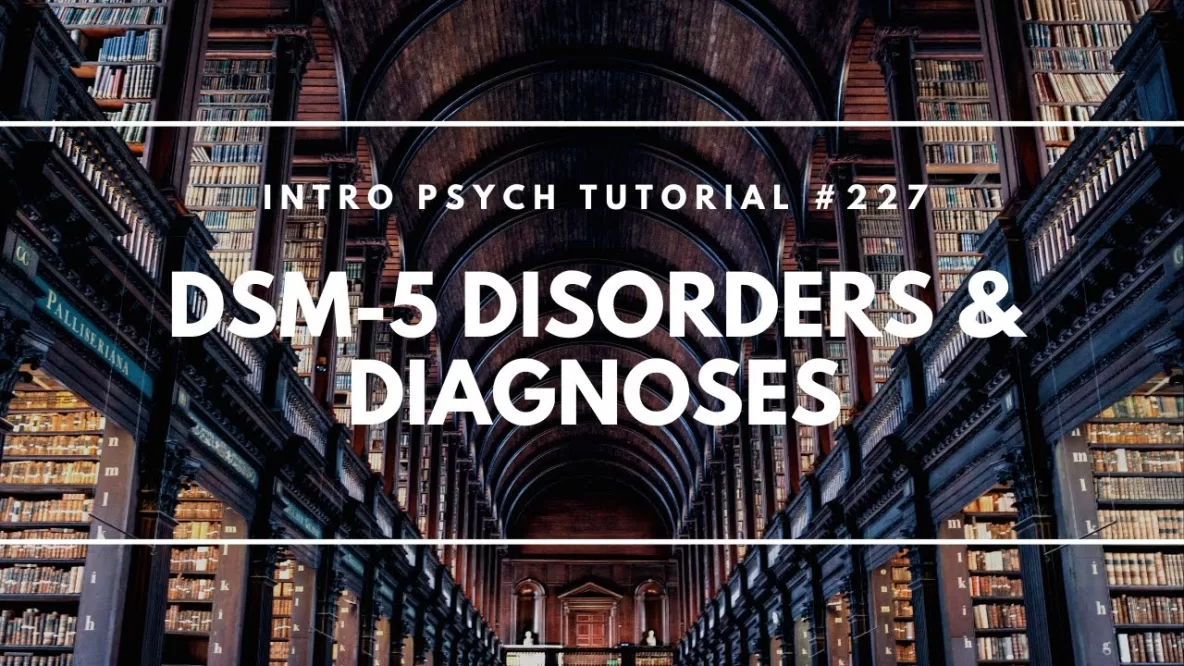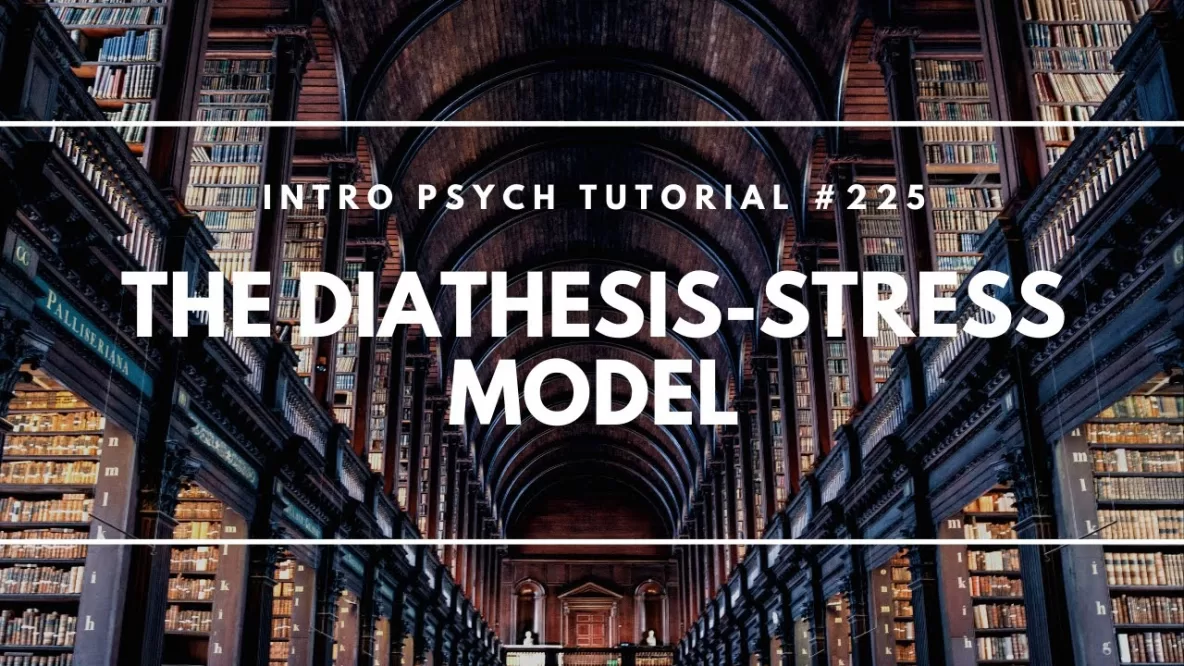In this video I provide information on diagnosis of mental illness using the DSM-5, including the use of minimum symptoms, unspecified disorders, and substance or medication induced disorders. I also provide a caveat regarding “medical student’s disease” and the importance … Read More
Culture & Mental Illness
In this video I discuss the relationship between culture and mental illness and how culture may influence the prevalence, expression, or understanding of psychological disorders. While the DSM-IV described “culture-bound syndromes” such as koro (penile retraction syndrome), the DSM-5 has … Read More
The Diathesis-Stress Model
In this video I describe the diathesis-stress model. This model suggests that development of mental illness can be explained by two main factors – a genetic predisposition (diathesis) and environment (stress). Individuals vary for both of these factors and these … Read More
On Being Sane in Insane Places – The Rosenhan Study
In this video I discuss David Rosenhan’s well-known study in which pseudo-patients went for psychiatric consultations and described a single symptom of hearing voices. I discuss how this study raised questions about recognition and diagnosis of mental illness, interpretations of … Read More
Deviance, Dysfunction, Distress, & Disorders
In this video I describe characteristics that are important for determining whether traits or behaviors represent potential symptoms of a disorder. These mostly focus on deviance, dysfunction, and distress, though danger and duration also play a role in identifying symptoms. … Read More
What is Normal?
In this video I begin the unit on psychopathology by asking how we can define normality and abnormality. Which traits or behaviors should be considered abnormal and indicative of a psychological disorder? What role do societal views play in the … Read More
Stress & Health Psychology Knowledge Organizer
Here’s a knowledge organizer I’ve created of the most essential terms for stress and health psychology in an introductory psychology course. These knowledge organizers are designed to help you identify the most important factual knowledge you need to have in … Read More
Overview of Positive Psychology
In this video I describe some of the concepts of positive psychology and its emphasis on thriving, growth, and well-being. I discuss optimism, upward and downward comparison, gratitude, and the adaptation level phenomenon or hedonic treadmill, as well as how … Read More
Stress, Social Support, & The Faith Factor
In this video I describe how social support can help people to manage stress. This may come in the form of tangible support, informational support, or emotional support, though not all social interactions are beneficial for managing stress. I also … Read More









